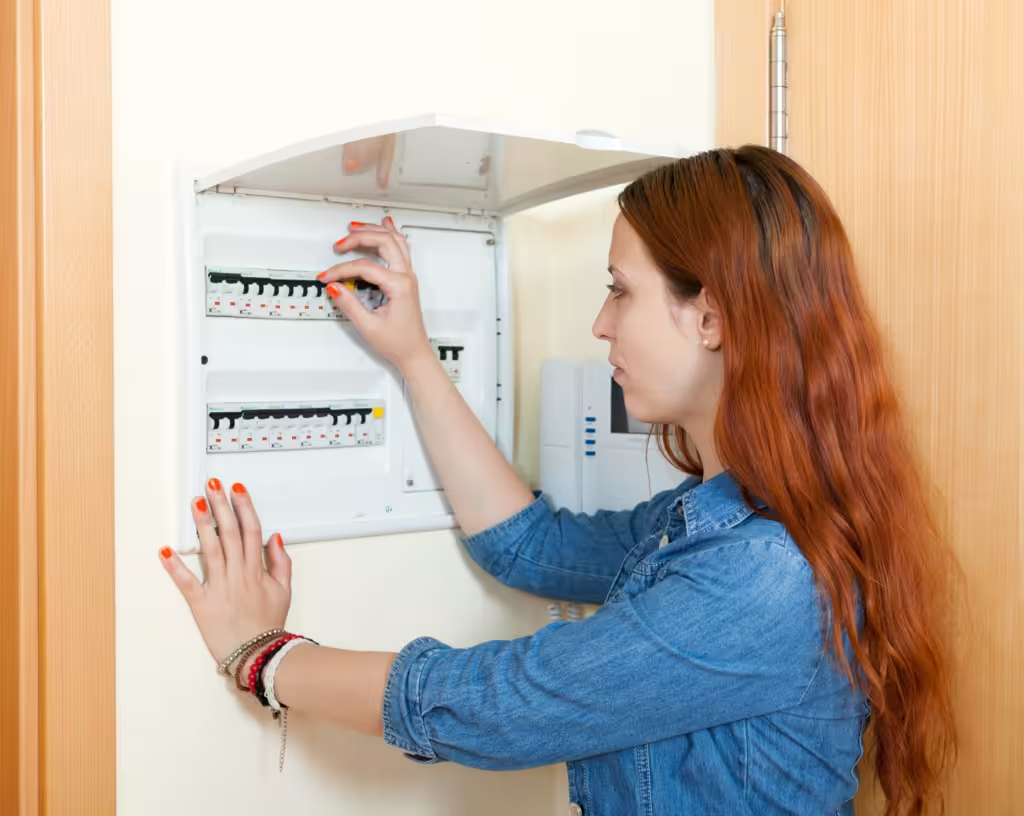A circuit breaker plays a critical role in protecting your home’s electrical system from overload and potential fire hazards. However, if you ever notice that your circuit breaker feels hot to the touch, it’s a sign that something might be wrong. Ignoring a hot breaker can be dangerous and lead to electrical fires or damage to your appliances. In this blog post, we’ll explore six common reasons why your circuit breaker might be hot and what you should do about it.
Overloaded Circuit:
An overloaded circuit is the most common reason for a hot breaker. When too many electrical devices are connected to a single circuit, it can draw more current than the breaker can handle. As a result, the breaker may heat up and trip to prevent a potential fire. To avoid this, distribute your electrical devices evenly across different circuits and avoid overloading them.
Loose Wiring:
Loose or corroded wiring connections within your electrical panel can cause resistance and generate heat. If you suspect loose wiring, it’s crucial to turn off the power to that circuit immediately and consult a qualified electrician. They can safely inspect and tighten the connections to prevent further overheating.
Faulty Circuit Breaker:
Sometimes, the problem lies with the breaker itself. A malfunctioning breaker may not trip when it should, allowing excessive current to flow through the circuit, causing it to heat up. If you suspect a faulty breaker, it’s essential to have it replaced by a professional electrician.
Poor Ventilation:
Inadequate ventilation around your electrical panel can also contribute to a hot breaker. Electrical panels need proper airflow to dissipate heat generated during normal operation. Ensure that the area around your panel is clear of obstructions, and if necessary, consult an electrician to improve ventilation.
Corrosion or Damage:
Corrosion or physical damage to the circuit breaker or the surrounding components can hinder its ability to function correctly. Regular maintenance and inspection by a qualified electrician can help identify and address any damage or corrosion issues promptly.
Excessive Current Draw:
Sometimes, an unexpected surge in electrical demand can cause a circuit breaker to get hot. This can occur when large appliances like air conditioners or refrigerators start up. To minimize the risk, consider using surge protectors and dedicated circuits for high-demand appliances to prevent overheating.
Concusion:
A hot circuit breaker is a warning sign that should never be ignored. Ignoring the issue can lead to electrical fires, appliance damage, or even electrical shock hazards. If you ever notice a hot circuit breaker, it’s best to immediately turn off the affected circuit and consult a licensed electrician. Regular maintenance and proper electrical management can help prevent many of the issues discussed here, ensuring the safety and functionality of your electrical system.
Contact Point B Electrical Services for a thermal imaging inspection of your electrical panel today!
Attribute:
Image by bearfotos on Freepik:
<a href=”https://www.freepik.com/free-photo/woman-turning-off-light-switch_1238465.htm#query=circuit%20breaker&position=2&from_view=search&track=ais”>Image by bearfotos</a> on Freepik
*Go back to Point B Electrical Services home page…
*Discover the latest updates, promotions, and expert electrical tips by visiting Point B Electrical Services Facebook page today!


